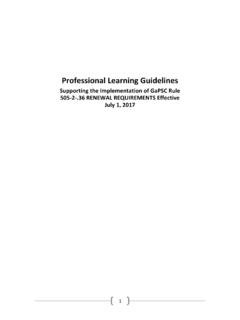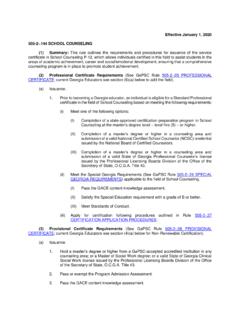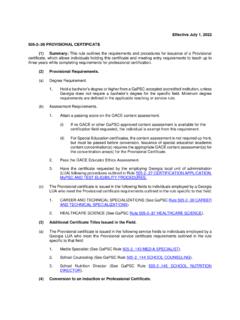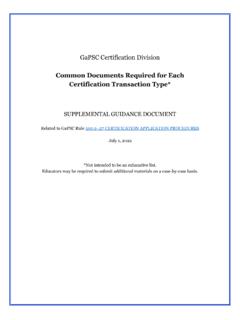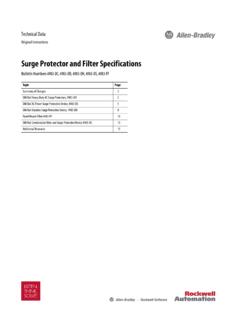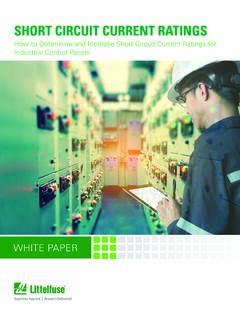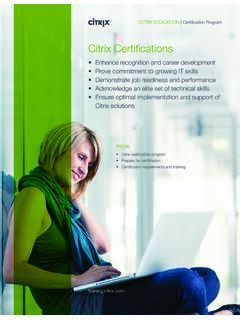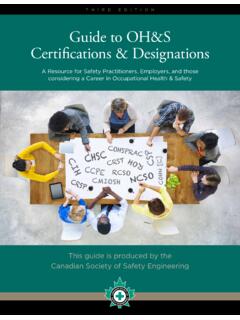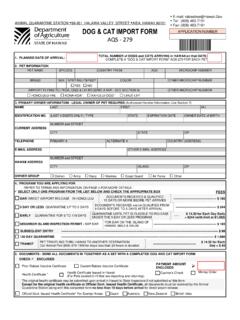Transcription of Effective January 1, 2022 505-6-.01 THE CODE OF ETHICS FOR ...
1 Effective January 1, 2018 505- 6 THE code OF ETHICS FOR EDUCATORS (1) Introduction. The code of ETHICS for Educators defines the professional behavior of educators in Georgia and serves as a guide to ethical conduct. The Georgia Professional Standards Commission has adopted standards that represent the conduct generally accepted by the education profession. The code defines unethical conduct justifying disciplinary sanction and provides guidance for protecting the health, safety and general welfare of students and educators, and assuring the citizens of Georgia a degree of accountability within the education profession.
2 (2) Definitions (a) Breach of contract occurs when an educator fails to honor a signed contract for employment with a school/school system by resigning in a manner that does not meet the guidelines established by the Georgia Professional Standards Commission. (b) Certificate refers to any teaching, service, or leadership certificate, license, or permit issued by authority of the Professional Standards Commission. (c) Child endangerment occurs when an educator disregards a substantial and/or unjustifiable risk of bodily harm to the student. (d) Educator is a teacher, school or school system administrator, or other education personnel who holds a certificate issued by the Professional Standards Commission and persons who have applied for but have not yet received a certificate.
3 For the purposes of the code of ETHICS for Educators, educator also refers to paraprofessionals, aides, and substitute teachers. (e) Student is any individual enrolled in the state s public or private schools from preschool through grade 12 or any individual under the age of 18. For the purposes of the code of ETHICS for Educators, the enrollment period for a graduating student ends on August 31 of the year of graduation. (f) Complaint is any written and signed statement from a local board, the state board, or one or more individual residents of this state filed with the Professional Standards Commission alleging that an educator has breached one or more of the standards in the code of ETHICS for Educators.
4 A complaint will be deemed a request to investigate. (g) Revocation is the invalidation of any certificate held by the educator. (h) Denial is the refusal to grant initial certification to an applicant for a certificate. (i) Suspension is the temporary invalidation of any certificate for a period of time specified by the Professional Standards Commission. (j) Reprimand admonishes the certificate holder for his or her conduct. The reprimand cautions that further unethical conduct will lead to a more severe action. (k) Warning warns the certificate holder that his or her conduct is unethical.
5 The warning cautions that further unethical conduct will lead to a more severe action. (l) Monitoring is the quarterly appraisal of the educator s conduct by the Professional Standards Commission through contact with the educator and his or her employer. As a condition of monitoring, an educator may be required to submit a criminal background check (GCIC). The Commission specifies the length of the monitoring period. Page 2 (m) No Probable Cause is a determination by the Professional Standards Commission that, after a preliminary investigation, either no further action need be taken or no cause exists to recommend disciplinary action.
6 (3) Standards (a) Standard 1: Legal Compliance - An educator shall abide by federal, state, and local laws and statutes. Unethical conduct includes but is not limited to the commission or conviction of a felony or of any crime involving moral turpitude; of any other criminal offense involving the manufacture, distribution, trafficking, sale, or possession of a controlled substance or marijuana as provided for in Chapter 13 of Title 16; or of any other sexual offense as provided for in code Section 16-6-1 through 16-6-17, 16-6-20, , or 16-12-100; or any other laws applicable to the profession.
7 As used herein, conviction includes a finding or verdict of guilty, or a plea of nolo contendere, regardless of whether an appeal of the conviction has been sought; a situation where first offender treatment without adjudication of guilt pursuant to the charge was granted; and a situation where an adjudication of guilt or sentence was otherwise withheld or not entered on the charge or the charge was otherwise disposed of in a similar manner in any jurisdiction. (b) Standard 2: Conduct with Students - An educator shall always maintain a professional relationship with all students, both in and outside the classroom.
8 Unethical conduct includes but is not limited to: 1. committing any act of child abuse, including physical and verbal abuse; 2. committing any act of cruelty to children or any act of child endangerment; 3. committing any sexual act with a student or soliciting such from a student; 4. engaging in or permitting harassment of or misconduct toward a student that would violate a state or federal law; 5. soliciting, encouraging, or consummating an inappropriate written, verbal, electronic, or physical relationship with a student; 6. furnishing tobacco, alcohol, or illegal/unauthorized drugs to any student; or 7.
9 Failing to prevent the use of alcohol or illegal or unauthorized drugs by students under the educator s supervision (including but not limited to at the educator s residence or any other private setting). (c) Standard 3: Alcohol or Drugs - An educator shall refrain from the use of alcohol or illegal or unauthorized drugs during the course of professional practice. Unethical conduct includes but is not limited to: 1. being on school or Local Unit of Administration (LUA)/school district premises or at a school or a LUA/school district-related activity while under the influence of, possessing, using, or consuming illegal or unauthorized drugs; and 2.
10 Being on school or LUA/school district premises or at a school-related activity involving students while under the influence of, possessing, or consuming alcohol. A school-related activity includes, but is not limited to, any activity sponsored by the school or school system (booster clubs, parent-teacher organizations, or any activity designed to enhance the school curriculum Foreign Language trips, etc). Page 3 (d) Standard 4: Honesty - An educator shall exemplify honesty and integrity in the course of professional practice. Unethical conduct includes but is not limited to, falsifying, misrepresenting, or omitting: 1.
